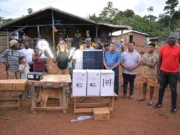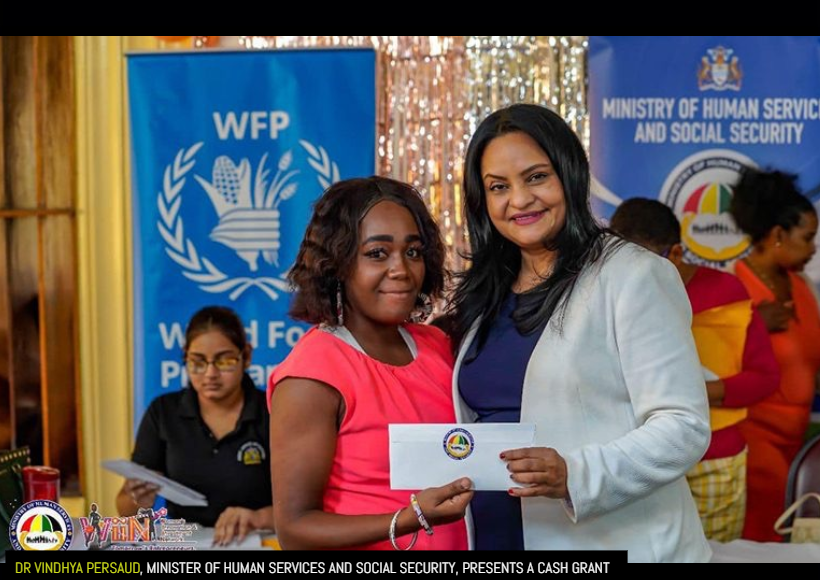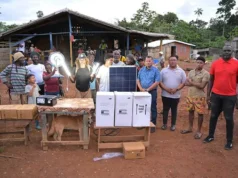The Government of Guyana, through its National Pathway for Food Systems Transformation, is making remarkable strides towards enriching rural livelihoods, diversifying the economy, and advancing the regional food security agenda of the Caribbean Community (CARICOM).
In a momentous development, the Food and Agriculture Organization of the United Nations (FAO) and the World Food Programme (WFP) have extended their support through the Joint Sustainable Development Goals (SDG) Fund, aligning with the government’s endorsement of the ‘Twenty-Five by 2025 Initiative.’ This initiative, spearheaded by President Irfaan Ali, aims to reduce the region’s US$5 billion food import bill by 25 percent by 2025.
As part of this transformative endeavor, smallholder farmers and participants in ongoing socio-economic empowerment programs throughout the country have received vital farm input supplies and a one-time cash grant. The implementation of this project was facilitated by the Office of the United Nations Resident Coordinator, ensuring coherence and collaboration between the FAO and WFP, thereby strengthening efforts to enhance intergovernmental coordination.
A significant highlight of this initiative was the distribution of a one-time cash grant to participants engaged in the Women Innovation and Investment Programme (WIIN) or the ‘WIIN in Business’ initiative. This programme empowers women and girls by equipping them with the necessary knowledge and skills to enhance their economic engagement within their communities.
Collaborating with the WFP, the Ministry of Human Services and Social Security disbursed approximately USD$79,000 among 225 participants nationwide. The cash grant aims to address the immediate needs of the participants and support their proposed ventures, fostering economic opportunities and community resilience.
In addition to providing cash assistance, the WFP offered ongoing technical support to the Ministry, assisting in program lifecycle management, vulnerability assessment, beneficiary targeting, reporting, and post-distribution monitoring.
The collaboration between the FAO and various national agencies, including the National Agricultural Research & Extension Institute (NAREI), the Guyana Rice Development Board (GRDB), and the Guyana Livestock Development Authority (GLDA), further solidifies their partnership.
As a result, a comprehensive two-day workshop was organized, aiming to equip farmers with knowledge on new and cost-effective feed and fertilizer alternatives to enhance production and productivity.
The workshop garnered participation from approximately 19 farmers hailing from 17 communities, accompanied by 23 extension officers who provide support across various agricultural sectors. Notably, the workshop witnessed significant participation from female farmers and extension officers, followed by young farmers.
The FAO has noted that it remains resolute in its commitment to supporting vulnerable populations, with a particular emphasis on youth and women.













